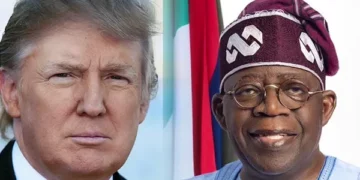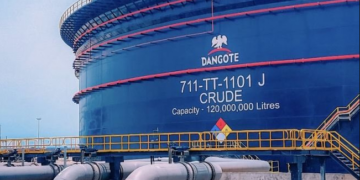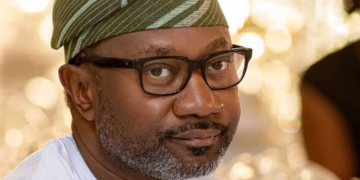Economists at the International Monetary Fund (IMF) have said that weak governance, poor macroeconomic management, and institutional inefficiencies have raised borrowing costs for Nigeria and other sub-Saharan African countries.
They also warned of the risks of syndicated loans, which have been on the rise in the region recently.
Speaking at an analytical session on ‘A Panorama of the External Financing Landscape in Sub-Saharan Africa’ at the ongoing 2025 World Bank/IMF annual meeting in Washington DC on Tuesday, IMF economists, Can Sever and Thibault Lemarie from the Fund’s African Department said the rising cost of debt in Sub-Saharan African (SSA)countries was self-inflicted mainly driven by domestic risks rather than unfair treatment by the international financial system.
“On secondary markets, sovereign spreads have been higher in Sub-Saharan African countries than in other developing economies, particularly after the COVID-19 pandemic and the war in Ukraine. But once we account for fundamentals, macroeconomic and financial risks, as well as governance quality, the difference essentially disappears,” Lemarie explained.
The IMF economists argued that with elevated global interest rates and shrinking access to concessional financing, Sub-Saharan African countries, including Nigeria, must anchor their fiscal strategies on credibility and institutional reform.
“Building well-developed local bond markets and improving governance takes time, but these are essential steps toward sustainable financing. By closing the governance gap with other developing regions, SSA countries can reduce borrowing costs and create fiscal space for development spending,” Lemarie said.
The IMF economists dispelled the idea that African nations are unfairly penalised in global capital markets. Instead, they argued that countries with stronger institutions, transparent fiscal systems, and credible macroeconomic policies enjoy lower borrowing costs and easier access to funds.
“When we control for domestic risks and governance, the data show no systematic bias against Africa. Countries in the region are rated essentially the same as other developing nations when fundamentals are similar. What this means is that governance matters, and it matters a lot,” Sever added.
The IMF economists noted that, between 2020 and 2024, Sub-Saharan African governments raised about $40 billion through Eurobond issuances, while borrowing through cross-border syndicated loans totalled about $170 billion over the past two decades. However, borrowing costs have soared, with the average yield on recent Eurobond issues rising from 6.5 per cent to 9.5 per cent, a 300-basis-point increase within a few years.
They noted that the sharp jump was not a result of global discrimination, but rather a reflection of domestic vulnerabilities, weak fiscal frameworks, and governance gaps that elevate investor risk perception.
According to the report, stronger governance frameworks, including rule of law, fiscal transparency, and anti-corruption measures, not only lower the cost of borrowing but also expand access to capital markets.
“Governance is not just morally right, it’s fiscally smart. Countries with sound governance attract more investment, secure better credit ratings, and face fewer fiscal pressures”, he stated.
Meanwhile, Lemarie noted that IMF analysis showed that African countries increasingly turn to syndicated bank loans and local bond markets for financing. He explained that historically, syndicated loans have been easier to access, but they carry transparency risks. Since the pandemic, syndicated lending in SSA has doubled from an average of $6 billion annually to about $13 billion, outpacing Eurobond issuance.
Lemarie warned that the opacity of such instruments poses governance risks. “Syndicated loans are often less transparent than Eurobonds, making it harder for citizens and even parliaments to track public debt obligations. Good governance is therefore critical to ensure these instruments do not become fiscal traps,” he said.
Similarly, domestic debt issuance has more than doubled since 2019, as governments look inward for financing amid constrained global liquidity. But the IMF cautioned that excessive domestic borrowing could crowd out private credit and increase systemic risks.
“In countries where banks already hold large volumes of government debt, relying too heavily on domestic borrowing can backfire. It can raise financial vulnerabilities and restrict credit to the private sector,” Sever explained.





